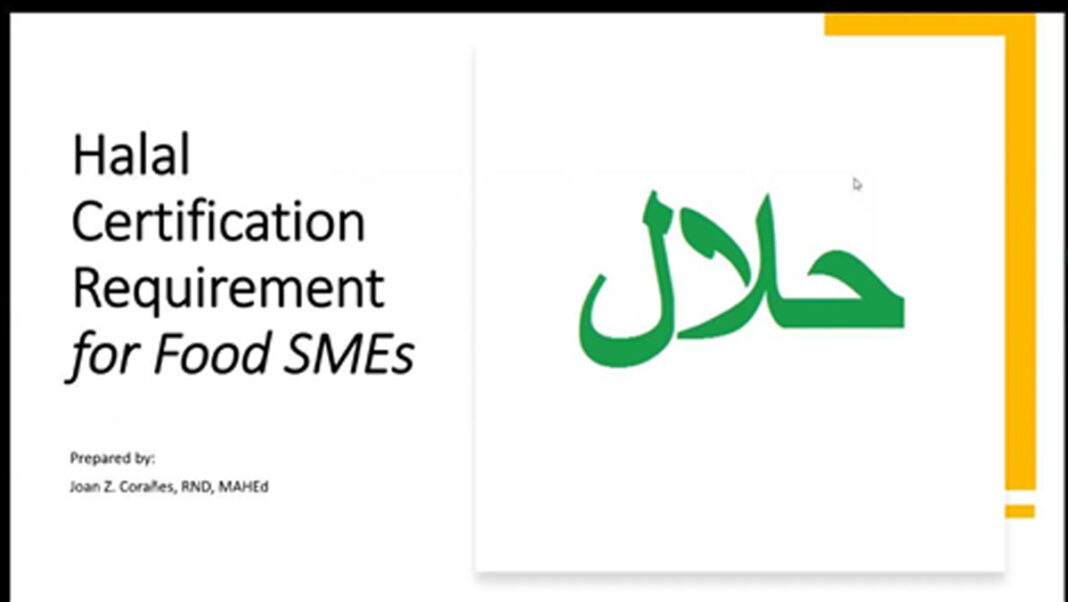IN its continuous endeavor to promote an inclusive Micro, Small and Medium Enterprise (MSME) sector, the DOST Provincial S&T Office (PSTO) – Laguna conducted a Webinar that encouraged local MSMEs to get Halal certified.
Prof. Joan Z. Corañes of the Polytechnic University of the Philippines (PUP) underscored the importance of getting Halal certification as its market fragment continues to grow and be recognized internationally, particularly by the Association of Southeast Asian Nations (ASEAN) community.
The Professor defined Halal as “foods or its ingredients that do not contain any components or products of animals that are unlawful as food to Muslim by Shariah Law or of lawful animals which are not slaughtered according to Shariah Law.”
She discussed that Halal certification validates that an enterprise or organization is compliant to the necessary guidelines and production practices to make sure that their products are Shariah, or lawful and permitted by the Islamic law.
The Professor tackled the salient points of the ASEAN General Guidelines on the Preparation and Handling of Halal Food.
This certification is one way of considering the welfare of our Islam compatriots and providing them a wider range of food options.
Mary Grace Avanzado of Mi Gracias, a new small busi-ness owner who joined the webinar, expressed her appreciation of DOST’s initiative to support MSMEs by providing free trainings and seminars, like this Halal certification webinar that tackled the requirements to get certified.
“Yung mga ganitong trainings help us entrepreneurs (to) have a clearer vision of our future. May mga pangarap na kami bilang mga maliliit na negosyante pero by attending such trainings, namumulat ang aming mga mata sa mga possibilities at opportunities na mayroon,” which she said includes the opportunity to obtain Halal Certification to add value to their product.
As discussed, all land animals are considered lawful as food, except the animals that are not slaughtered according to Shariah Law, pigs, and dogs. Also the animals with long pointed teeth used to kill their prey, including tigers, bears, elephants, cats and monkeys; predator birds; and animals that Islam prescribes to be killed such as mice, snakes, and centipedes, among many others.
More so, animals prohibited from being killed including ants and bees, creatures regarded as filthy, and amphibians were also considered unlawful. While, all aquatic animals, all plants and drinks are labeled as “halal” except those that are harmful to people’s health.|-BNN / Rachel Joy C. Gabrido














